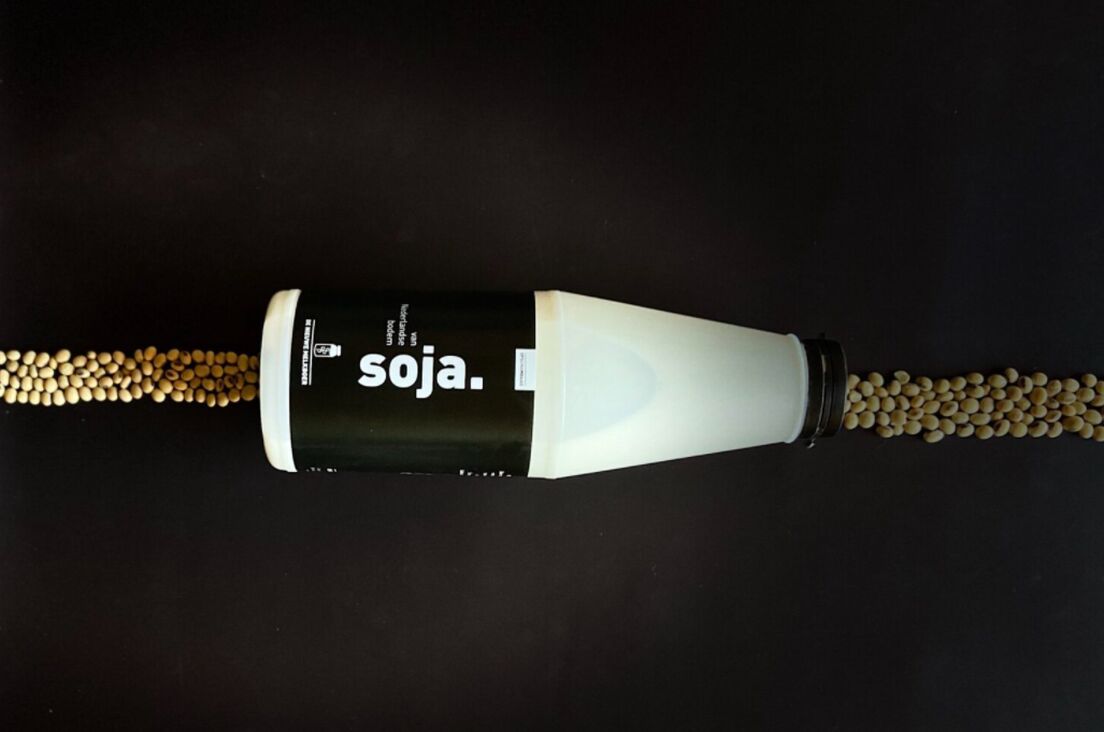Food for Thought #1 – The world of lab-grown meat, with Ira van Eelen
Can lab-grown meat be a solution for a more sustainable food system?

There’s no getting around them these days, literally and figuratively: protesting farmers blocking roads, nitrogen pollution, climate targets, animal welfare and the protein transition. There’s plenty of food for debate surrounding our food sector and the origin of the proteins we consume. Fortunately this is happening already! But it’s important that this debate is carried out openly and honestly, whereby context is key. We’re kicking off with this article to create more context about the situation that the agricultural sector finds itself in. A hot topic in this regard is the excessive consumption of animal proteins. We can see that the balance has been lost and, as far as we’re concerned, restoring this balance is not an option but a necessity. But how has this situation actually come about?
Never again hunger
After the Second World War it was our forebears who began producing and consuming animal proteins (milk, cheese, meat) on a large scale, so as never to have to experience hunger again. Efficient food production became an end in itself. So farmers were strongly advised by the powers that be to specialise. Whereas they previously often kept a variety of animals and grew a range of crops for them, after the war most farmers chose to specialise. They became pig farmers, poultry farmers, cattle farmers or arable farmers. Thanks to these specialisations the Dutch agricultural sector became one of the most efficient in the world. Because of this our parents never had to worry about whether enough food would be available, and for the first time it was seen as ‘normal’ to eat meat every day, with the result that animal protein products lost their status as luxury items and were transformed into everyday mass consumption products.
All of this has made it clear that consumption and production go hand in hand. So it would be wrong to blame the agricultural sector for causing this imbalance; after all, everyone has benefited from it. Of course this doesn’t mean that we as farmers don’t have to bear any responsibility. In fact we believe that we in the agricultural sector have to take the lead. In this way we can initiate the change that we ourselves would have liked to see: a change that matches the wishes of the consumer.
Our future
Some years ago, as young dairy farmers with a view to taking over our parents’ dairy farm, we started thinking about the way in which we wanted to proceed with this family business. We too have seen that the balance regarding the production of plant-based and animal proteins has been lost, and we want to do something about this. Instead of drinking endless cups of coffee in endless meetings we’d rather focus on cappuccinos and soya beans. Cappuccinos made with Dutch soya, that is! Of course we don’t mean drinking plant-based cappuccinos during those endless meetings, but rolling up our sleeves to create the first plant-based cappuccino based on soya from the Netherlands. In doing so we can take a step in the right direction and restore the consumption balance of animal and plant-based proteins.
It soon became apparent that this process wouldn’t always be easy, because we had to acquire knowledge on many different levels. So we had many questions on our minds: How can you grow crops that are suitable for plant-based dairy alternatives? What exactly does the Dutch consumer prefer? How do you process local crops into a food-safe product, and how will we ultimately bring our products to the customer, while at the same time keeping them affordable. By simply getting down to work and tackling the problems one by one we’re coming up with better and better answers to these questions, and always taking a step further.
We believe it’s essential that the debates surrounding agriculture continue, so that everyone can form their own opinion. But if you truly want to bring about change you have to take action. Ask yourself questions such as: Where exactly do I stand? How can I ensure that my actions make a positive contribution to the ultimate goal?
In any case, by setting up De Nieuwe Melkboer (‘The New Dairy Farmer’) we’ve taken a step in the right direction, because our Dutch soya milk is now a reality. And that first truly Dutch cappuccino with our homemade soya drink? It was delicious, and it’s left us wanting more!
